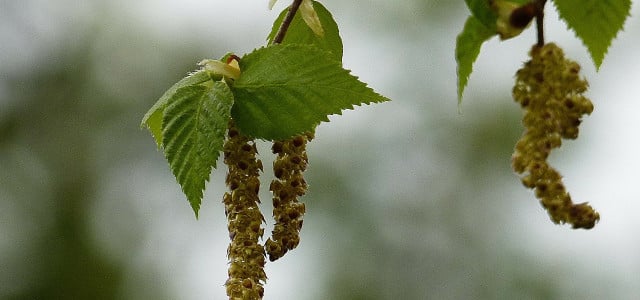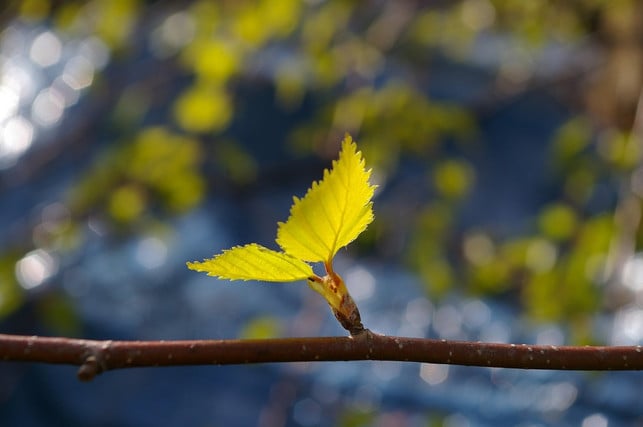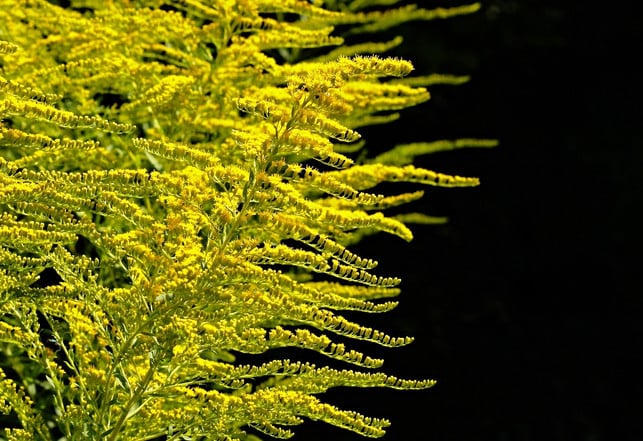
Birch leaves have been used for medicinal purposes for centuries because of their water-propelling properties. The medicinal plant can develop its potential particularly well if you use it to make birch leaf tea.

(Photo: CC0 / Pixabay / BabaMu)
The birch was already revered by the Celts and to this day has a firm place among medicinal plants with proven medicinal properties. Its diuretic effect is considered useful for a variety of ailments:
- Urinary tract infections such as cystitis
- Skin problems
- colds
- rheumatism
- gout
The flavonoids from birch leaves are responsible for the water-propelling effect. These phytochemicals ensure that you excrete more water than you consume. They support your body in all detoxification processes and, above all, relieve the strain on the kidneys and skin. You can find out everything about using birch leaf tea in this article.
Collect birch leaves yourself: What you need to know before using them
With its light green leaves, the birch has always been a symbol of spring. During this time you can also collect the young leaves and then dry them. To do this, spread them out on a tray or hang them up and store them in a dark room or box. The leaves are dry when you can rub them with your fingers. You can find the native tree mainly in wide open spaces or on the edge of the forest and recognize it by its distinctive white bark.
If you can’t find birch trees in your area, you can also buy the dried leaves at the pharmacy. Note: Birch leaf tea can be a useful home remedy and can reduce symptoms with the correct use and dosage. However, home remedies are often not a substitute for medical treatment, for example for inflammation of the urinary tract. If you do not notice any improvement in your symptoms despite using birch leaves, always visit a doctor to get to the bottom of any underlying problems.
Birch leaf tea: This is how you prepare it

(Photo: CC0 / Pixabay / KRiemer)
Caution: If you suffer from edema caused by heart or kidney problems, have a febrile urinary tract infection or acute prostate inflammation, you should avoid birch leaf tea. The same applies to a birch pollen allergy, says biologist Martina Feichter.
For one liter of birch leaf tea you need:
- 1 large spoonful of dried birch leaves
- 1 liter of water
This is how you prepare the tea:
- Bring the water to a boil.
- Place a large spoonful of birch leaves into a tea strainer.
- Pour the hot water over the sieve in a suitable pot and let the tea steep.
Depending on the intended use, the brewing time varies:
- Birch leaf tea is particularly effective for a cold because of the vitamin C it contains. Since this vitamin is very sensitive to heat, you should only heat the water to around 80 degrees and only let the leaves steep for about five minutes.
- If you would like to do a treatment to improve the appearance of your skin or to reduce pain in rheumatism and gout (see Martina Feichter), you can let the leaves steep for up to 15 minutes to increase the diuretic effect. Then you should remove the leaves from the tea, otherwise it will taste bitter. During the three to four week treatment you can drink up to one and a half liters of birch leaf tea every day. Make sure that you also drink another two liters of water or other tea while doing this.
This is how you use birch leaves for urinary tract infections

(Photo: CC0 / Pixabay / manfredrichter)
It is not for nothing that the birch is called the kidney tree. It is said to help even with kidney grit, a precursor to kidney stones (see Martina Feichter). To enhance their water-propelling effects, you can combine the birch leaves with goldenrod and horsetail (also known as horsetail). These herbs also have a diuretic effect and help flush your urinary tract.
For one liter of tea you need:
- 1 teaspoon of birch leaves
- 1 teaspoon goldenrod
- 1 teaspoon field horsetail
- 1 liter of water
The quantities apply to dried herbs. If you prefer to use the fresh plant parts, simply double the quantity.
This is how you prepare the tea:
- Boil the water.
- Fill the herbs into a tea strainer.
- Pour the hot water over the herbs.
- Let the tea steep for 15 minutes and then remove the herbs.
During an acute urinary tract infection, you can drink about three to five cups of the appropriate tea daily until the symptoms improve. If this is still not the case after a week, you should seek medical advice by then at the latest. Either way, it is advisable to seek advice from your doctors when treating your urinary tract infection.
Read more on Utopia:
- Birch sap: The refreshing drink made from the tree trunk
- These 7 medicinal plants are natural painkillers and antibiotics
- Maple syrup, honey, agave syrup & Co.: the truth about sugar substitutes
Edited by Freya Petersen
** marked with ** or orange underlined Links to sources of supply are partly partner links: If you buy here, you are actively supporting Techzle\.com, because we then receive a small part of the sales proceeds. More info.